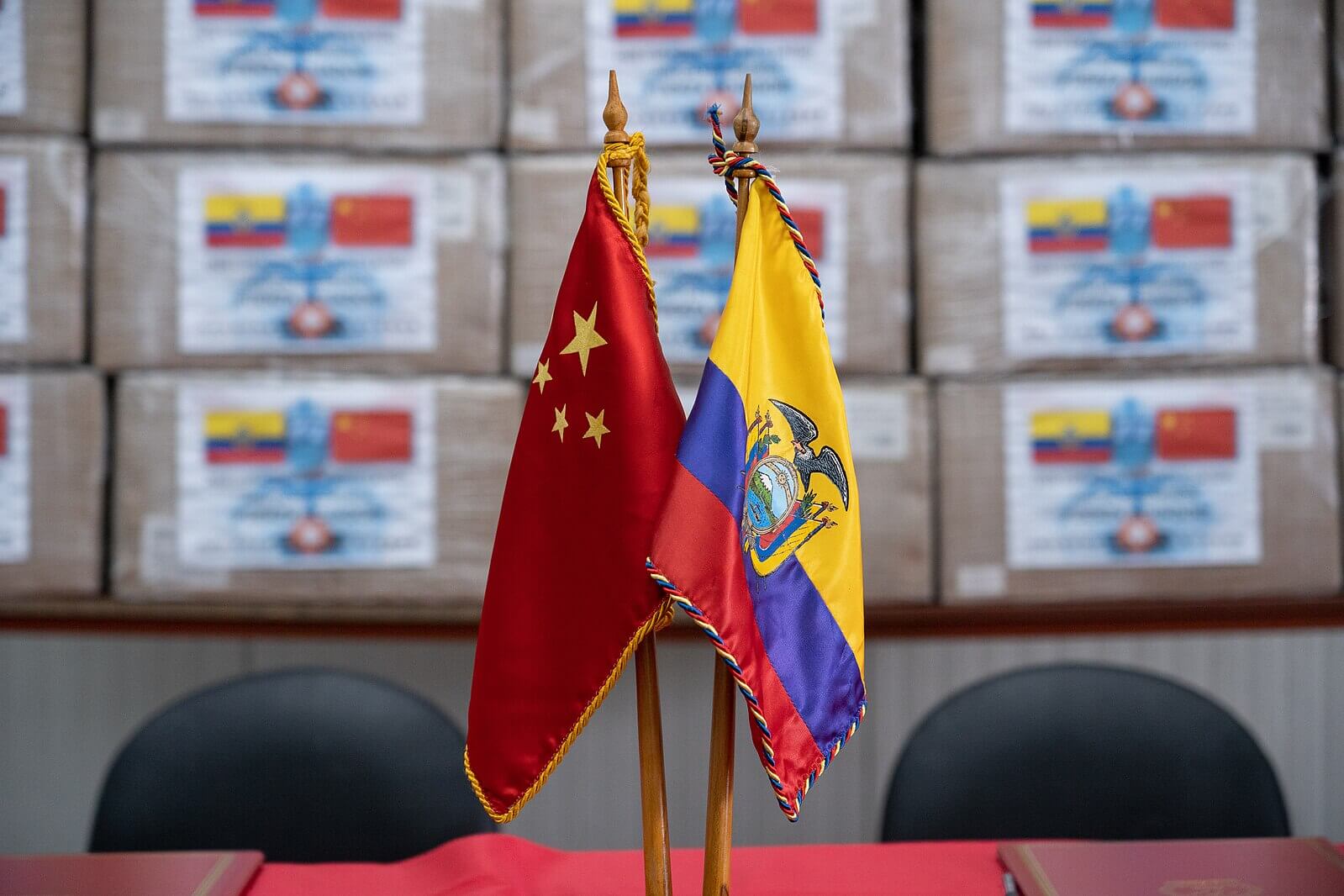Ecuador ratifies FTA with China despite environmental concerns
Photo: Wikimedia Commons.
Ecuadorian President Daniel Noboa has confirmed the ratification of the country’s Free Trade Agreement (FTA) with China, despite criticism from indigenous and environmental organizations. The approval of the FTA took place in the National Assembly on February 7, backed by a favorable ruling from the Constitutional Court. With this agreement, Ecuador becomes the fourth Latin American country to establish a free trade agreement with China, following in the footsteps of Chile, Peru and Costa Rica.
The agreement, which was signed in May 2023 during the administration of former President Guillermo Lasso, aims to open up new commercial opportunities for Ecuador by providing access to one of the largest and most dynamic markets in the world. Although the Ecuadorian government claims that the FTA represents “an unprecedented gateway to trade opportunities,” a number of voices, including indigenous and environmental organizations, have raised significant concerns.
Proponents of the FTA, particularly business groups, stress that it will boost non-oil exports, especially of key products such as shrimp, lead, and copper concentrate. In 2022, trade between Ecuador and China will reach $12 billion, with Ecuadorian exports of $5.8 billion and Chinese sales of $6.4 billion.
However, critics of the agreement have raised concerns about potential environmental and social impacts. They fear that the FTA could facilitate the entry of toxic waste and Chinese fishing fleets into Ecuadorian waters, creating conflicts and compromising environmental rights in the Ecuadorian Amazon.
In addition, there are concerns that the agreement will threaten the country’s food sovereignty by allowing the duty-free import of transgenic seeds and encouraging the “over-export” of food to China, which could have negative environmental and soil health consequences.
Despite criticism, the FTA is expected to go into effect between May and June this year, marking a milestone in Ecuador-China trade relations and sparking an ongoing debate about its potential long-term environmental and social impacts.

